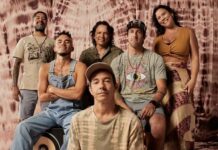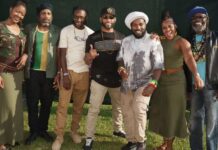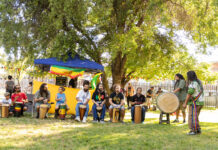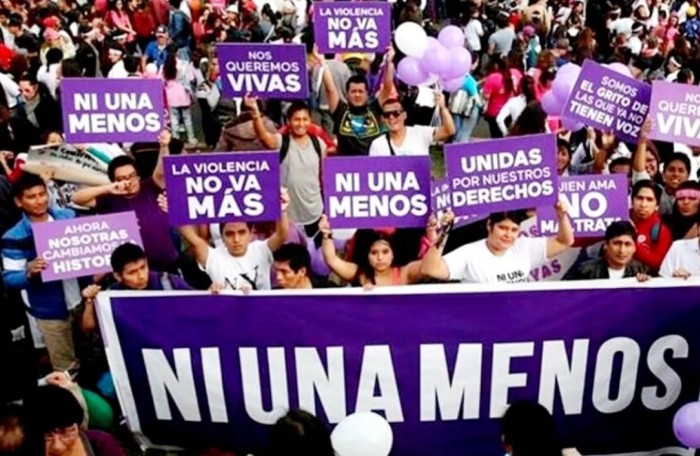The Empress Menen Asfaw Chile Foundation (FEMA) released a public statement rejecting gender violence and particularly that which has occurred within families of the Rastafari movement.
In the text FEMA expresses the need to publicly assume the different cases that have been registered within the movement to address the corresponding solutions and reparations..
“We consider that publicly assuming the challenges that this situation presents is an important step to address it., prevent it and aim for reparation from a community perspective”, supports the statement.
further, FEM calls on the different Rastafari houses and organizations throughout the country to place this matter as “a central aspect to address in your agendas and projections”.
“We suggest that Rastafari Houses and organizations strengthen the role they have in protecting a life free of violence., establishing avenues to receive complaints, provide support to those involved, monitor cases and advise therapeutic treatment”, add the statement.
FEMA, in his statement, also recognizes “the example of perfect balance that S.M.I has left us. Haile Selassie I and Empress Menen Asfaw, which inspires us to continually highlight the importance and contribution of Rastafari women within the movement and towards the rest of society., as well as the search for human relationships where integrity prevails, respect and justice”.
Review the full statement from FEMA Chile below.:
From the Empress Menen Asfaw Chile Foundation, an organization created by Rastafari women with the purpose of supporting the improvement of the quality of life of families and communities, We make the following statement in relation to gender violence that occurs within the family or within the couple.:
Gender violence, that seriously violates the integrity of the members of the families who live it, It is a social problem, transversal and international, large-scale. It is one of the most disastrous legacies of patriarchal colonialism, as the aggressor establishes physical and psychological mechanisms of oppression and domination over his victim, over periods of time that can be long. At the same time, Violence is established as a dynamic of the relationship when situations of crossed violence manifest themselves at different levels., that are continually repeated, generating a cycle of dependency that is difficult to interrupt and, for which, Links of support and professional and institutional help are required to protect the safety of those involved.
It is essential to publicly assume that there are numerous cases of violence and abuse within families that are part of the Rastafari movement or carried out by members of the movement.. There are complaints that have been known at a collective level and others that have been kept private., Some date back years and others are more recent.. Between these, There are reports of domestic violence and physical and/or psychological abuse, sexual abuse, rape of minors, child abuse, among others. We find ourselves in the context of the Rastafari movement in Chile, but nevertheless, We know that this is an international problem, since Rastafari women have been raising complaints in other countries in Latin America and the World.
We consider that publicly assuming the challenges that this situation presents is an important step to address it., prevent it and aim for reparation from a community perspective. Along with assuming it, It must be emphatically stated that these are unacceptable situations and that they should not be repeated..
We consider, further, that we have had few tools and opportunities for dialogue and collective action to confront this problem, which has caused mistrust and polarization to grow within the movement. In this sense, The problem of violence collaterally affects the entire community and, every time a new complaint appears, we relive the failure that this means, like an open wound.
There are serious emotional self-regulation and/or mental health problems in people who become part of the Rastafari movement., that is not resolved by the mere fact of declaring oneself a Rastafari.
That these people come to play a role within the community or frequent spaces where wearing the appearance of a Rastafari man or woman is highly valued. (for example, Rastafari assemblies or spaces related to the reggae music scene), should not confuse the community or cause their condition to be omitted or go unnoticed.
The use of elements of culture, how dreadlocks or Ethiopian colors, can function as an escape mechanism and habitual cannabis use, what is sacramental in culture, can be a risk factor that puts the way of being reactive to the limit, aggressive and ambivalent of these people.
All of the above, We raise this declaration as a collective security alert, to emphasize the magnitude of this problem and appeal to Rastafari Houses and Organizations, so that they place it as a central aspect to be addressed in their agendas and projections. We suggest that Rastafari Houses and organizations strengthen the role they have in protecting a life free of violence., establishing avenues to receive complaints, provide support to those involved, monitor cases and advise therapeutic treatment.
At the same time, We express our support to all those victims who dare to report their aggressors, as well as those who are experiencing a situation of violence without having yet been able to take that step.
We recognize the example of perfect balance that S.M.I has left us. Haile Selassie I and Empress Menen Asfaw, which inspires us to continually highlight the importance and contribution of Rastafari women within the movement and towards the rest of society., as well as the search for human relationships where integrity prevails, respect and justice. Finally, we assume that as F.E.M.A.. We do not have definitive answers to this problem nor do we have sufficient tools or resources., To the date, to intervene in the cases indicated, but it is without a doubt, a priority concern to address from our organization. Empress Menen Asfaw Chile Foundation, October 2022




















